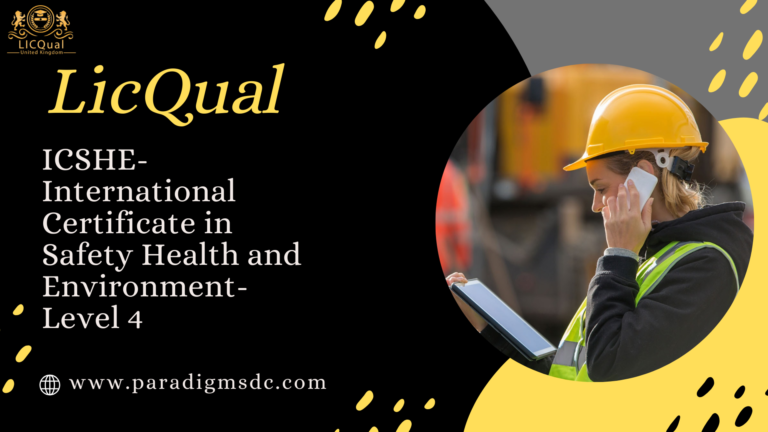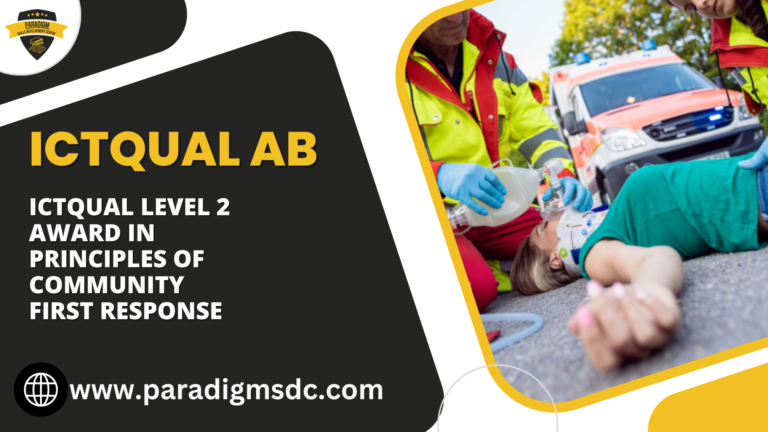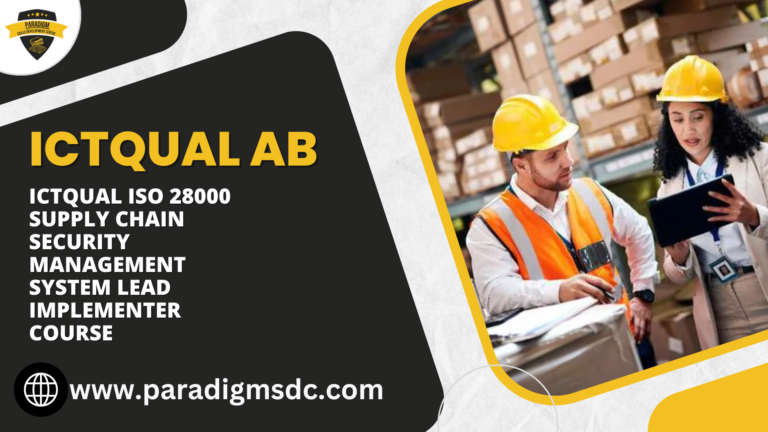Course Introduction
In the healthcare sector, maintaining a clean, decontaminated, and safe environment is paramount to ensuring patient safety and preventing the spread of infections. The ICTQual Level 3 Award in Healthcare Cleaning, Decontamination, and Waste Management is a specialized course designed to provide healthcare professionals with the knowledge and skills required to effectively manage cleaning, decontamination, and waste processes in medical facilities. This course is essential for those looking to uphold the highest standards of hygiene and safety in healthcare settings.
Course Overview
This comprehensive course covers all aspects of healthcare cleaning, decontamination, and waste management. Students will learn about the principles and practices of maintaining a hygienic environment in healthcare facilities, the methods for decontaminating medical equipment and surfaces, and the proper management of healthcare waste. The course combines theoretical instruction with practical applications to ensure that participants are well-prepared to implement effective cleaning and waste management strategies in their workplaces.
Course Study Units
- Introduction to Healthcare Cleaning
- Cleaning Techniques and Procedures
- Use of Cleaning Agents
- Infection Control and Prevention
- Decontamination Processes
- Healthcare Waste Management
- Regulatory Compliance
- Health and Safety in the Workplace
- Quality Assurance and Continuous Improvement
Learning Outcomes
Upon completing the ICTQual Level 3 Award in Healthcare Cleaning, Decontamination, and Waste Management, students will be able to:
Introduction to Healthcare Cleaning
- Understand the Healthcare Environment: Recognize the unique challenges and requirements of maintaining cleanliness in healthcare settings.
- Identify the Role and Responsibilities: Define the key responsibilities of healthcare cleaning professionals and their impact on patient safety.
Cleaning Techniques and Procedures
- Master Surface Cleaning Techniques: Demonstrate proficiency in cleaning various surfaces, including floors, walls, and furniture.
- Prioritize High-Touch Areas: Identify high-touch areas and implement effective cleaning strategies to reduce contamination.
- Clean Medical Equipment: Apply proper cleaning methods to ensure medical and non-medical equipment are sanitized.
Use of Cleaning Agents
- Differentiate Cleaning Agents: Understand the types of cleaning agents and their appropriate applications in healthcare settings.
- Adhere to Safety Guidelines: Implement safe handling and storage procedures for cleaning chemicals.
- Promote Environmental Sustainability: Incorporate eco-friendly cleaning practices and products into daily routines.
Infection Control and Prevention
- Understand Basic Microbiology: Recognize common pathogens found in healthcare environments.
- Implement Infection Control Protocols: Apply standard and transmission-based precautions to prevent the spread of infections.
- Utilize Personal Protective Equipment (PPE): Correctly use and dispose of PPE to minimize contamination risks.
Decontamination Processes
- Apply Sterilization Methods: Use appropriate sterilization techniques for medical instruments and equipment.
- Differentiate Disinfection and Sterilization: Understand the differences and proper applications of disinfection versus sterilization.
- Decontaminate Patient Areas: Execute best practices for decontaminating patient rooms and operating theatres.
Healthcare Waste Management
- Classify Healthcare Waste: Identify and categorize various types of healthcare waste.
- Implement Waste Segregation: Practice proper waste segregation techniques to prevent cross-contamination.
- Ensure Safe Disposal: Follow safe and compliant disposal methods for all types of healthcare waste.
Regulatory Compliance
- Understand Local and National Regulations: Gain knowledge of healthcare cleaning and waste management regulations.
- Familiarize with International Standards: Learn about international guidelines and standards such as those from WHO and CDC.
- Maintain Documentation and Reporting: Develop skills in proper documentation practices to ensure compliance and facilitate audits.
Health and Safety in the Workplace
- Promote Occupational Health and Safety: Implement practices to ensure personal safety and minimize workplace risks.
- Conduct Risk Assessments: Perform and document comprehensive risk assessments.
- Prepare for Emergencies: Develop preparedness and response plans for emergencies such as spills and exposure incidents.
Quality Assurance and Continuous Improvement
- Implement Quality Control Measures: Establish and monitor quality control protocols to maintain high standards.
- Foster Continuous Improvement: Apply strategies for ongoing improvement in cleaning, decontamination, and waste management practices.
- Enhance Customer Service: Deliver high-quality service and ensure patient satisfaction in healthcare settings.
Course Benefits
- Specialized Knowledge: Gain in-depth understanding of healthcare cleaning, decontamination, and waste management.
- Enhanced Skills: Develop practical skills to maintain high standards of hygiene and safety.
- Career Advancement: Improve qualifications and increase employability in the healthcare sector.
- Patient Safety: Contribute to a safer healthcare environment for patients and staff.
- Compliance: Ensure adherence to regulations and standards in healthcare cleaning and waste management.
Who is This Course For?
The ICTQual Level 3 Award in Healthcare Cleaning, Decontamination, and Waste Management is ideal for:
- Healthcare cleaning professionals seeking advanced training.
- Hospital and clinic staff responsible for maintaining hygiene standards.
- Infection control practitioners looking to expand their expertise.
- Facility managers in healthcare settings.
- Anyone interested in pursuing a career in healthcare cleaning and waste management.
Future Progression
Upon successful completion of this course, students can pursue further education and training opportunities, such as:
- Advanced certificates or diplomas in infection control or environmental health.
- Specialized courses in medical equipment sterilization.
- Leadership roles in healthcare facility management.
- Continuing professional development in healthcare safety and hygiene.
By completing this course, you will be equipped with the essential skills and knowledge to excel in healthcare cleaning, decontamination, and waste management, ensuring a safer and more hygienic environment for all.







